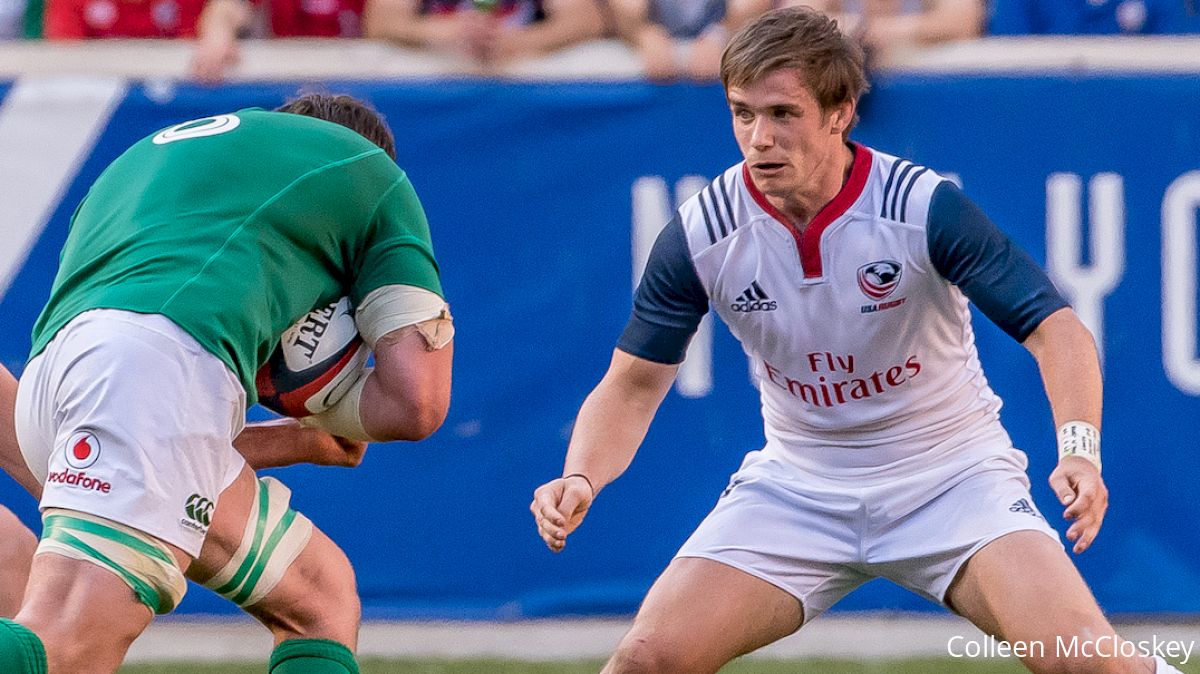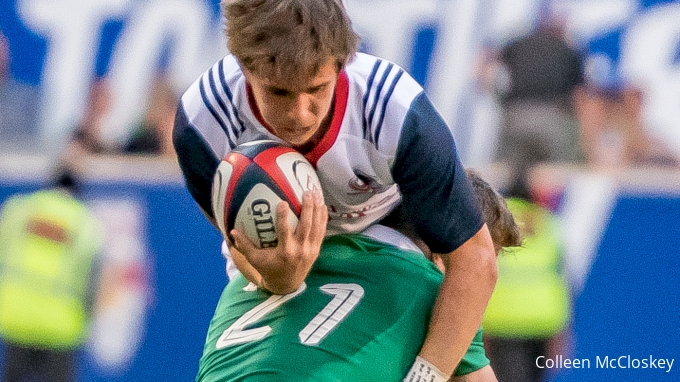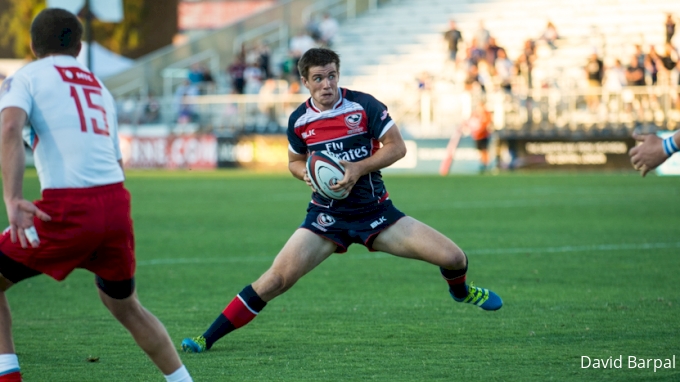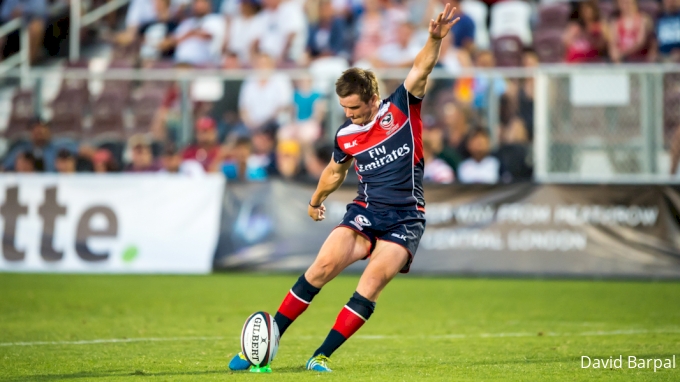Sale Flyhalf AJ MacGinty Eyes Premiership Return
Sale Flyhalf AJ MacGinty Eyes Premiership Return
FloRugby talks to AJ MacGinty about his return from injury, goalkicking, and trust.

In a week filled with good news for AJ MacGinty, one piece of information took precedence in the USA and Sale flyhalf's mind.
It wasn't the statistical tidbit that he is actually the most accurate goal kicker of all time in the Aviva Premiership. And, while welcome news, it wasn't the announcement last Wednesday that he had signed a four-year extension with Sale.
Instead, MacGinty was happiest to hear that he is going to be back on the field from his knee injury as much as three weeks earlier than expected.
A rugby player, after all, wants to play rugby.

“It’s been going well,” MacGinty said. “It’s always very frustrating to be sitting on the sidelines. But this [past] game against Northampton will hopefully be the last one I miss.”
Sale beat 34-25 this past Saturday without MacGinty to move to 8-9 overall this season, but the Sharks won’t play again in the Premiership during the Six Nations break until March 23.
“I am hoping to be back to attack those last five Premiership games,” the former Life University standout added. “[The injury] was a struggle when I started out, but I’ve worked pretty hard and it’s been pretty much like a preseason with the weights I’ve been doing and the rehab on top of that as well. The leg’s healed up really well. The knee’s feeling stronger. So the last issue is getting back into the kicking routine and striking the ball.”
The fear was that the knee injury — which he suffered against Harlequins on January 6 when some players rolled on top of him in a ruck — would keep him out several months.

“I just heard a pop straightaway and it was just really painful,” MacGinty said. “They thought it might be my ACL, which would be surgery and six or seven months. But it was just my MCL and didn’t require any surgery. It was a Grade 3, so no surgery, just rehab and it heals itself. I just have to build up the strength in the muscles around the knee.”
MacGinty said he was very worried about the seriousness of the injury. As he was pushed back over his own knee in the ruck, he immediately thought the worst.
“Mentally, it’s a lot of work to come back from an ACL," he said. "One of the boys in the club is rehabbing an ACL injury, so I know it’s an uphill battle. So when the injury happened I was thinking, ‘Ah, it’s my ACL and it’s going to be seven months and I will miss games and miss games with the USA.' I beat myself up in my head about it, so I was thankful it wasn’t.”
MacGinty knows getting his goalkicking routine straightened out is the next job, but feeling confident changing direction when running is also important.
“I am building the confidence and pushing off and changing the direction, but taking contact and having guys tackling you is a different story,” he explained. “The physios have done a great job with me and I am sure I’ll be well prepped. The doctors told me it comes back stronger. When I start running in a game hopefully I’ll give it everything I have and not think about it.”
Running and making a sidestep is a big part of MacGinty’s game. The ability to evade collisions as defenders target the flyhalf, said MacGinty, is crucial.
As for the goalkicking, he is expected to work on it. But being as accurate as he has been isn’t a bad thing. MacGinty was quick to note that while his 86.7 percent success rate is the best since the Premiership started in the pro era, his 90 attempts pale in comparison to Gareth Steenson (79.5 percent on 678 attempts) and Jonny Wilkinson (78.4 percent on 635).

“I’ve only been in the Premiership for a year and a half and 90 kicks isn’t that much," MacGinty said. "I can’t read anything into [the success rate], but I do a lot of work with my kicking coach on my placekicking and I look at the 600 as a target to get to in years to come.”
Being the starting flyhalf and goalkicker for an English Premiership team while being a USA player is a very rare thing.
Many players in that position struggle to get starts because of the RFU’s desire to have English depth at No. 10.
“We’re in a pretty competitive sport here so the pressure is never really off," MacGinty said. "I feel that but I am really enjoying my rugby, and I’ve settled in Manchester and got to know my teammates. Knowing who you play with and having their trust and knowing their trust is massive."